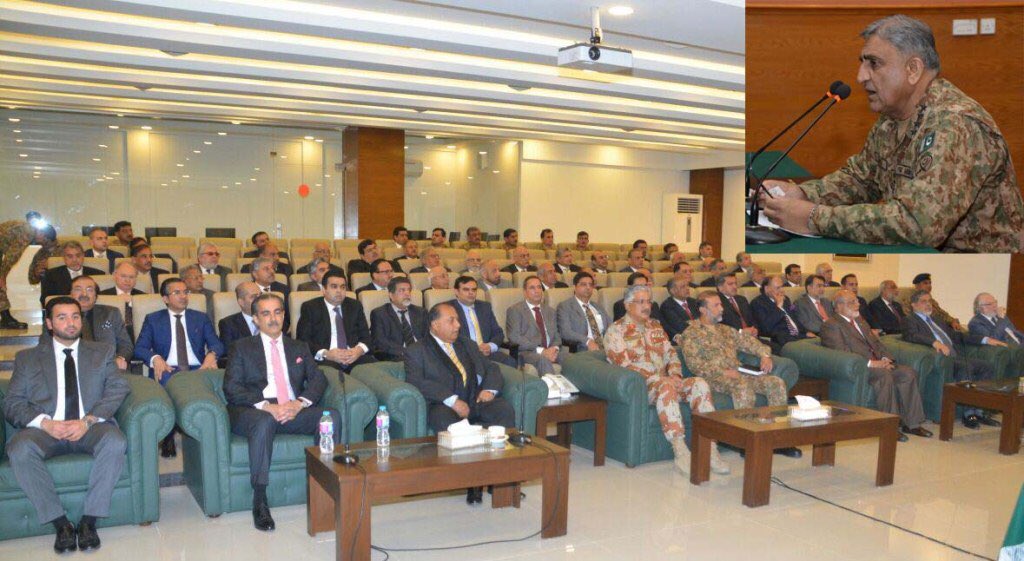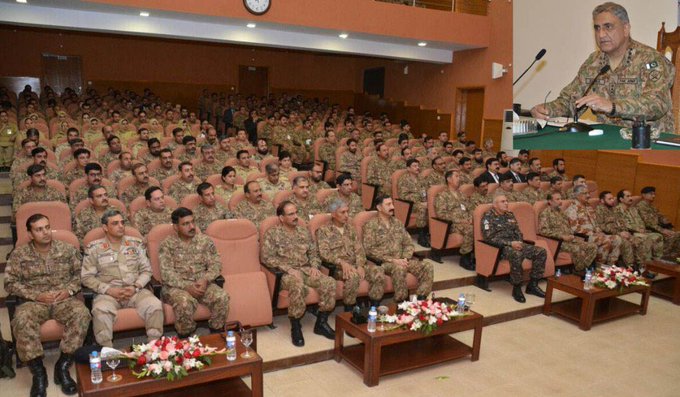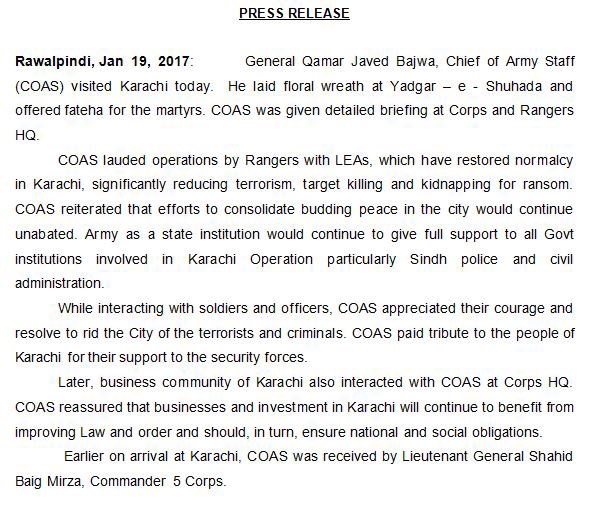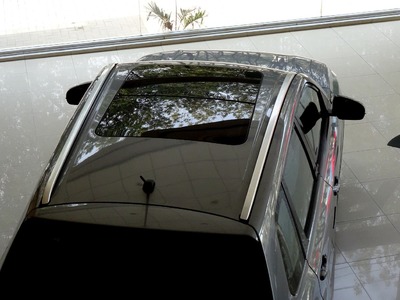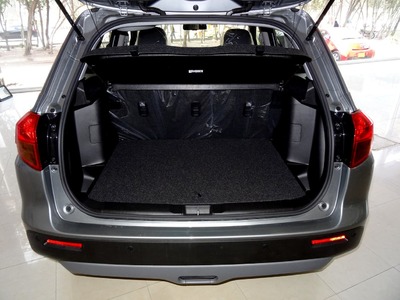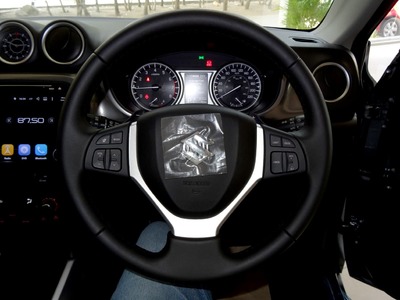ISLAMABAD - Pakistan on Thursday said India was developing a secret nuclear city in its southern parts and working on intercontinental missiles as part of its arms spree, directly threatening Pakistan.
Addressing a weekly news briefing, Foreign Office Spokesperson Nafees Zakaria said the India’s secret nuclear city, according to a Foreign Policy investigative report, was designed to produce thermonuclear weapons.
“Indian defence build-up, both nuclear and conventional, is a direct threat to Pakistan and the region, at large. India completed its plan of nuclear triad recently with the commissioning of a nuclear capable submarine,” he said.
Zakaria said India had been building inter-continental ballistic missiles and anti-ballistic missile system. “It has a stockpile of fissile material for producing nuclear weapons outside the IAEA (International Atomic Energy Agency) safeguards,” he said.
The spokesperson said that the conventional weapons balance was already disturbed in South Asia and India’s nuclear weapons build-up had dangerous proportions to tip the strategic balance and endangered the peace of the region and beyond.
“The perils of such an uncalled for defence build-up should be seen in the backdrop of Indian defence minister’s statement on reviewing the ‘nuclear no-first-use’ and admission by the Indian army chief about their ‘cold start doctrine’, which confirmed Pakistan’s claims and justified our credible minimum nuclear deterrence,” he said.
Zakaria said that the international community should take note and check Indian rapid expansion in conventional and nuclear weapons.
Answering a question on Samjhauta Express terrorist attack, he said that despite India’s commitment at the highest political level, they had not shared any evidence to date with Pakistan.
“Instead, with the passage of time, they have even exonerated Swami Aseemanand, the RSS leader, who had made a public confession that he was the mastermind of that terrorist act and Col Purohit, then an active service Indian army officer, who headed another terrorist organisation Abhinav Bharat, was also involved. They worked in tandem with IB, RAW and other agencies of India,” he said.
The spokesperson said that Pakistan has and will continue to raise the issue of Samjhauta Express terrorist attack not only with India but also with the international community. “Pakistan had earlier noted with deep concern India’s attempts to exonerate those who have publically confessed to their involvement in the terrorist attack,” he said.
Answering a question about Indian Home Minister Rajnath Singh’s notion that a referendum should be held in Pakistan whether they want to merge with India, he said: “Such remarks clearly violate the UN charter and respect for the sovereignty of a member state. Unfortunately, domestic politics in India had been used to further anti-Pakistan agenda by the Indian government.”
He said that Kashmiris have ridiculed the statement saying that India was aware of the possible results of the referendum in Kashmir and that was the reason they were resorting to such meaningless statements. “They have also rejected the home minister’s assertion that Kashmir belongs to India. The remarks by the Indian home minister do not merit further comments,” he said.
Zakaria said that India has committed more than 400 violations along the Line of Control in a few months as it was heating up the tension.
“We have raised this issue repeatedly with the international community and at various forums, and how this Indian belligerence is dangerously impacting peace and security in the region,” he said.
He rejected the alleged surgical strikes that India claimed to have conducted against Pakistan a couple of months ago, in the wake of the Uri attacks, terming it a drama.
Zakaria talked about the briefing given by the Foreign Office with reference to Kashmir Solidarity Day, “We also reiterated during the briefing, the perils of escalating tensions resulting from India’s continuous violation of the understanding of ceasefire in 2003. More importantly, the loss of innocent civilian lives is a matter of major concern.”
It is now evident that the main reason India tries to heighten tension on the LoC is to divert world’s attention from the grave human rights violations it is carrying out against defenceless Kashmiris in held Kashmir.
He said: “India lies about infiltration from across the LoC, which after the discovery of 2009 mass graves in Kashmir has proved to be a white lie. The International People’s Tribunal’s report in its findings stated that those found in the mass graves were indigenous Kashmiris and linked them to those thousands who had disappeared and were killed by Indian occupation forces in fake encounters.” He also condemned the victimisation of the Kashmiri leaders by India.
While talking about the multi-nation naval exercise in Pakistan and Indian Prime Minister Narendra Modi’s claims of isolating Pakistan, the spokesperson said: “These exercises are regularly held and a number of countries including Russia are participating in it. With reference to the statement of the Indian prime minister, you can judge that they have miserably failed to isolate Pakistan. In the process, India itself stood exposed and may be feeling isolated.”
He said India was involved in supporting terrorism in Pakistan. “The dossier on Kulbhushan Yadav and other details of Indian involvement in terrorist activities in Pakistan have already been submitted to the UN Secretary-General last month,” he said.
The spokesperson said that the United States had assured Pakistan that it was not among the list of banned countries. “We are in touch with the new administration in Washington and have been assured that no proposal to include Pakistan on the list of banned countries is under consideration. The US embassy in Islamabad has also issued a statement in this regard,” he said.
Regarding Adviser to the Prime Minister on Foreign Affairs Sartaj Aziz’s visit to the US in the coming weeks, he said: “Pakistan and the US do have regular high-level exchanges and we look forward to maintaining the momentum in our exchanges.”
He said defence cooperation between Pakistan and Russia was an important component in “our multifarious bilateral relations” which is progressing well. “Both sides are interested in enhancing cooperation in various areas of mutual interest,” he added.
The spokesperson said that the Russian energy minister was already in town, and his visit aimed at discussing the technical aspects and other related details of a gas pipeline project.
He said that Pakistan wanted peace in Afghanistan and had been invited to the meeting called by Russia. “The evolving situation in Afghanistan and its bearing on the regional peace and stability is expected to be reviewed. Pakistan is committed to peace in Afghanistan and extends sincere support to the initiatives to that end. It is a new initiative,” he said.
Asked if India’s participation in the meeting in Russia would be problematic, he said: “World had seen the attitude of one country, which actually exposed that country. Pakistan’s participation in the Heart of Asia Conference was a manifestation that Pakistan is fully committed to efforts aimed at bringing peace and stability in Afghanistan. Understandably, the meeting in Moscow is about the situation in Afghanistan. Pakistan is deeply committed to seeing a peaceful and stable Afghanistan and extend sincere cooperation in all such initiatives that are aimed at bringing peace in Afghanistan.”
He said the Economic Cooperation Organisation summit will be held on schedule next month and most of the countries had already confirmed their participation at the leadership level.
On the US sanctions on Iran, he said that Pakistan had longstanding relations with the United States and “we would like them to further strengthen them. Both sides constantly interact with each other to that end.”
He said Iran was Pakistan’s neighbour and a Muslim country with which “we cooperate on various forums besides bilaterally. Our relations are longstanding, cordial and diverse.”
To a question about the Pakistan International Airlines flight which was not allowed to land at the Heathrow airport, he said: “We have taken up this issue with the British authorities.”
On deportation of Pakistanis from Saudi Arabia and other Arab countries, Zakaria said that deportation of nationals of various countries from the Gulf and Western countries was not specific to Pakistan.
Source: The Nation

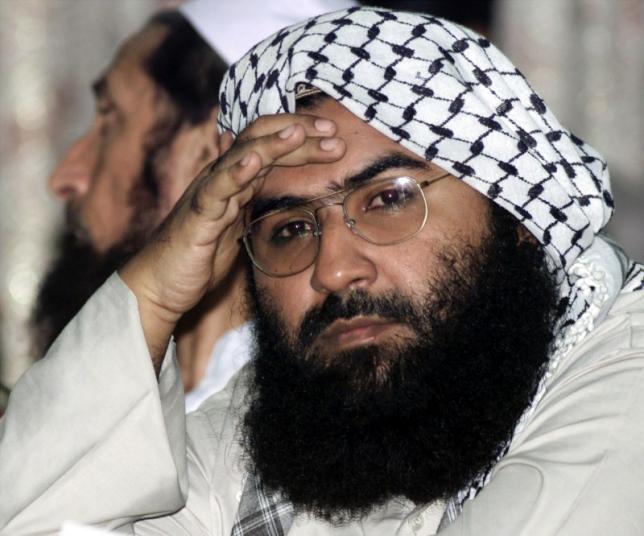

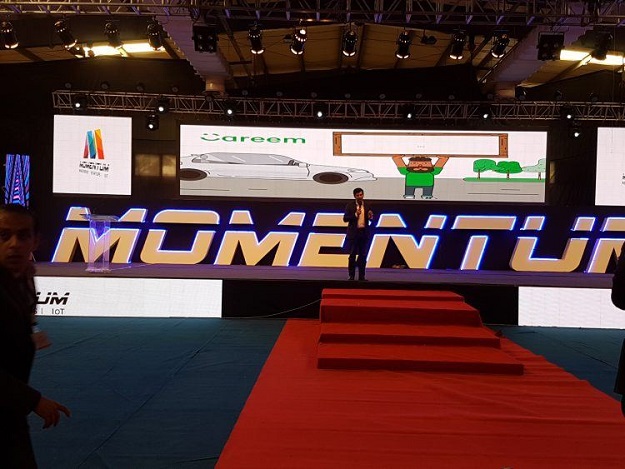




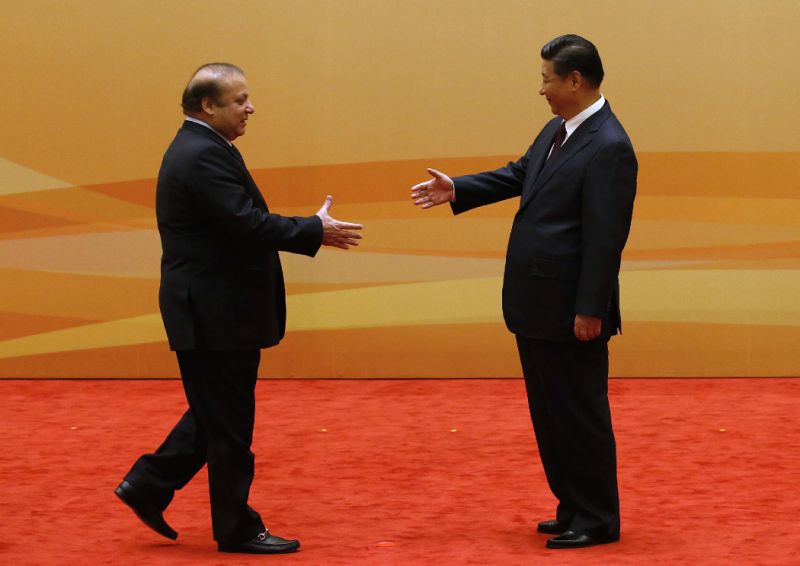



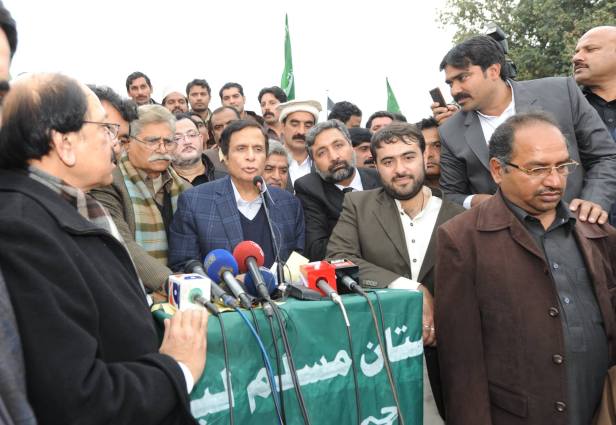 Addressing a very big quite enthusiastic Workers Convention in Gujranwala today, he said that during our tenure even poor patient was taken to the hospital on ambulance where free medicines were provided to him even injecting costing up to Rs 10 thousand was also given free, but now the patient is told to come to the hospital along with cot, bed and medicines from home. He said that there are neither beds nor medicines in the hospitals now, patients are breathing last lying on cold floor,
Addressing a very big quite enthusiastic Workers Convention in Gujranwala today, he said that during our tenure even poor patient was taken to the hospital on ambulance where free medicines were provided to him even injecting costing up to Rs 10 thousand was also given free, but now the patient is told to come to the hospital along with cot, bed and medicines from home. He said that there are neither beds nor medicines in the hospitals now, patients are breathing last lying on cold floor,  Continuing, he said that
Continuing, he said that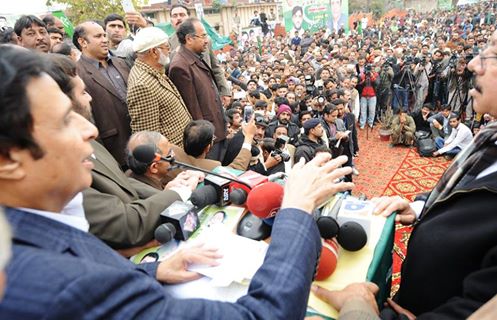 He pointedly stated that whichever scheme was started during our tenure is still functional, we were providing job opportunities to ten lakhs people every year, Shehbaz Sharif had started 9 schemes all of which have failed, Nandipur power Project, Bahawalpur Solar Power Project and Sahiwal projects all have failed, what other cities of Punjab will get from Orange Line, people do not need show off projects like jangla bus, they need medicines in hospitals and education in schools, N-League people are involved in Panama Case, all those who were mentioned in this case had resigned but they are sticking to the chair for last six months.
He pointedly stated that whichever scheme was started during our tenure is still functional, we were providing job opportunities to ten lakhs people every year, Shehbaz Sharif had started 9 schemes all of which have failed, Nandipur power Project, Bahawalpur Solar Power Project and Sahiwal projects all have failed, what other cities of Punjab will get from Orange Line, people do not need show off projects like jangla bus, they need medicines in hospitals and education in schools, N-League people are involved in Panama Case, all those who were mentioned in this case had resigned but they are sticking to the chair for last six months.
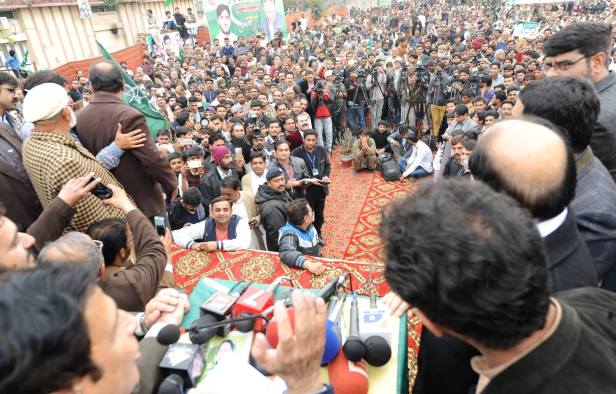 He said that we had started Sialkot-Lahore Motorway on which two foreign universities were also to be established which were shifted to India because of their incompetency, incompetent Chief Minister has put Punjab under heavy debt of Rs 2000 billion.
Paying rich tributes to active colleagues, he said that our party needs workers like Zain Ali Bhatti.
He said that we had started Sialkot-Lahore Motorway on which two foreign universities were also to be established which were shifted to India because of their incompetency, incompetent Chief Minister has put Punjab under heavy debt of Rs 2000 billion.
Paying rich tributes to active colleagues, he said that our party needs workers like Zain Ali Bhatti.
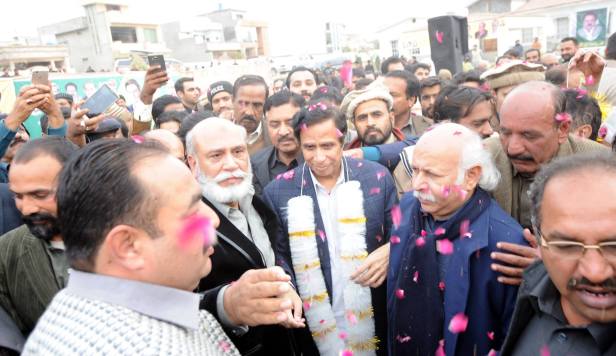 The Convention was also addressed by Tariq Bashir Cheema, Ch Zaheeruddin and Khawaja Waqarul Hassan while those seated on the stage on this occasion included Muhammad Basharat Raja, Zain Ali Bhatti, Bao Rizwan, Mian Imran Masood, Tanveer Azam Cheema, Col (R) Abbas, Hussain Elahi, Zubeida Ehsan, Irfan Ehsan, Ch Zulfiqar Pappan, Haji Shakir Mobeen, Ch Nasir Inayat Sira advocate, Engineer Shehzad Ali and other party leaders.
The Convention was also addressed by Tariq Bashir Cheema, Ch Zaheeruddin and Khawaja Waqarul Hassan while those seated on the stage on this occasion included Muhammad Basharat Raja, Zain Ali Bhatti, Bao Rizwan, Mian Imran Masood, Tanveer Azam Cheema, Col (R) Abbas, Hussain Elahi, Zubeida Ehsan, Irfan Ehsan, Ch Zulfiqar Pappan, Haji Shakir Mobeen, Ch Nasir Inayat Sira advocate, Engineer Shehzad Ali and other party leaders.
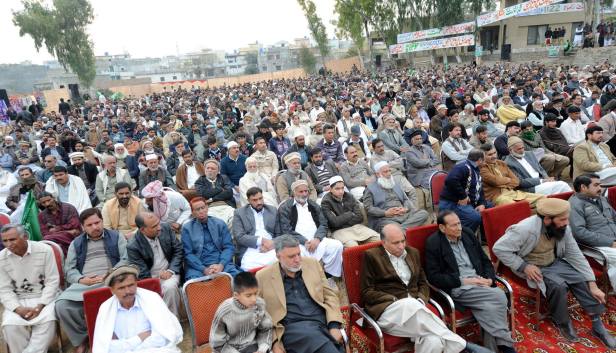 Earlier on arrival at the venue Ch Parvez Elahi was enthusiastically welcome by chanting of loud slogans and showering on flower petals. Convention participants kept raising repeatedly slogans of Ch Shujat Hussain,
Earlier on arrival at the venue Ch Parvez Elahi was enthusiastically welcome by chanting of loud slogans and showering on flower petals. Convention participants kept raising repeatedly slogans of Ch Shujat Hussain, 



